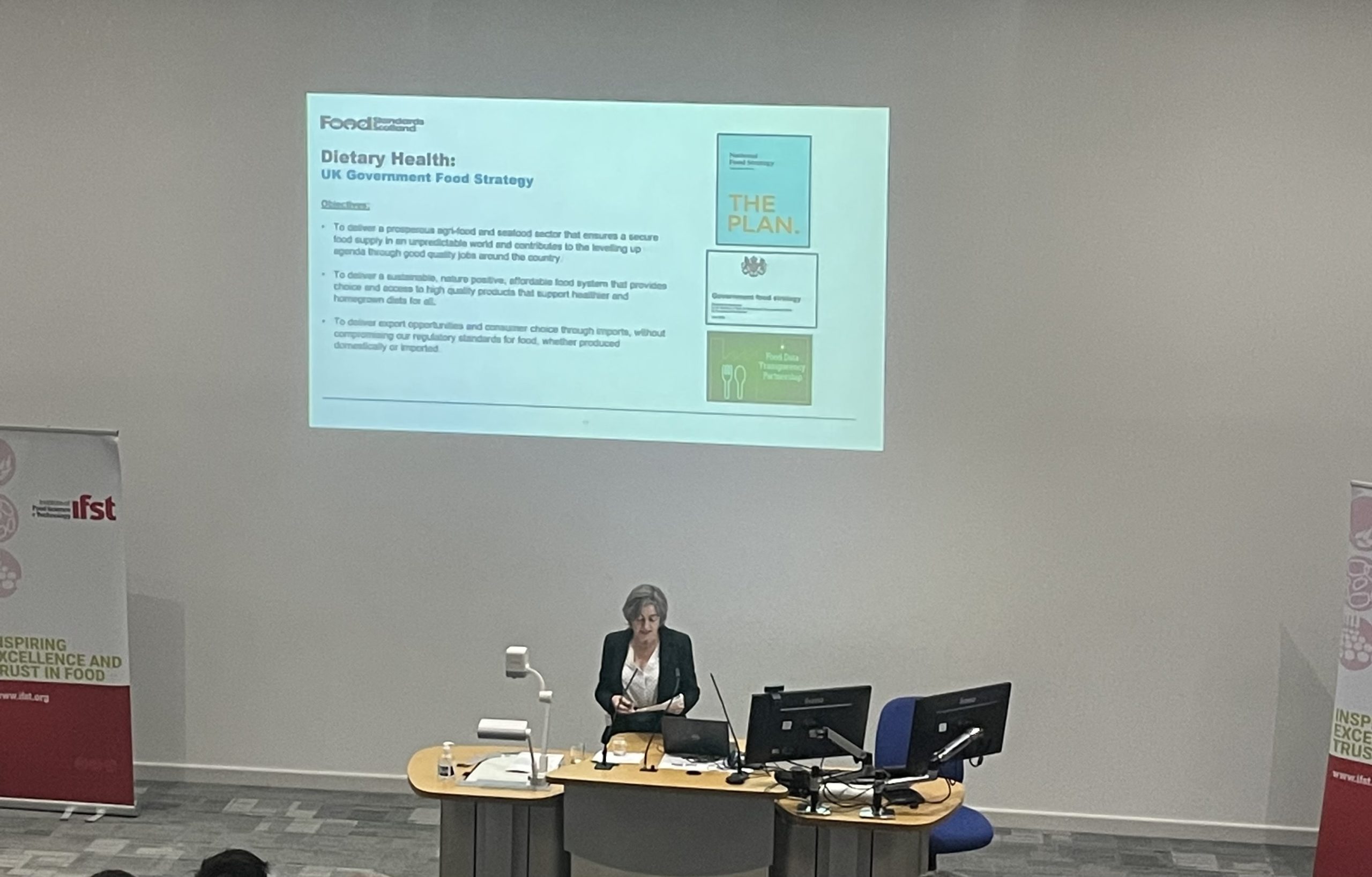How is FSS taming the perfect storm?
- Like
- Digg
- Del
- Tumblr
- VKontakte
- Buffer
- Love This
- Odnoklassniki
- Meneame
- Blogger
- Amazon
- Yahoo Mail
- Gmail
- AOL
- Newsvine
- HackerNews
- Evernote
- MySpace
- Mail.ru
- Viadeo
- Line
- Comments
- Yummly
- SMS
- Viber
- Telegram
- Subscribe
- Skype
- Facebook Messenger
- Kakao
- LiveJournal
- Yammer
- Edgar
- Fintel
- Mix
- Instapaper
- Copy Link
Posted: 28 April 2023 | Grace Galler | No comments yet
After attending the IFST Spring Conference 2023, Grace Galler reports on how Food Standards Scotland is tackling food insecurity and health and nutrition concerns.


Taking place in Cardiff, Wales, food and beverage industry professionals, including Food Standards Scotland (FSS), gathered at the Cardiff Metropolitan University to discuss key challenges that the sector is facing at the Institute of Food Science and Technology’s (IFST) 2023 Spring Conference.
Shedding light on how FSS is hoping to make Scotland more resilient when it comes to food security and health and nutrition concerns, Julie Hesketh-Laird, Deputy Chief Executive of FSS, outlined two key strategies during her talk. These include putting measures in place to ensure that Scottish consumers have access to clear nutritional guidance and mechanisms to support those facing food insecurity amid the cost of living crisis.
“Rising to the challenges”
A concerning claim that that stood out from Hesketh-Laird’s presentation was her statement that dietary goals in Scotland have not been met in 20 years. With this in mind, she brought the audiences attention to FSS’ recently published Public Health Nutrition Strategy.
Built on current scientific research and evidence based on public health nutrition, the Strategy works to drive a healthier and more sustainable food environment in Scotland.
Although the Deputy Chief Executive admitted that “we are in the storm right now and its butting us from side to side”, she explained that “FSS is there to protect the public, improving the diets and protecting the interests of consumers in relation to food.”
Published in March 2023, the Public Health Nutrition Strategy has various aims, including getting consumers to have healthier diets and empowering them to make positive choices about food. As well as these aims, the Strategy seeks to ensure that responsible food businesses are able to thrive.
In a report published by The Scottish Government, 67 percent of all adults in Scotland were living with overweight in 2021. Since then, Scottish consumers have had to contend with various challenges such as food inflation and the cost-of-living crisis which may have impacted the food they can afford to buy, perhaps resulting in convenient, cheap and less nutritional purchases being made.
“Consumers are feeling battered and bruised and companies being are financially hit,” explained Hesketh-Laird before continuing: “Consumers are our focus and they are really feeling the pressure.
“Food price is the number one thing that has come up as the top consumer concern. There have been shifts in shopping and cooking habits with some people skipping meals entirely and shrinking meals often.”
Admitting that she was “painting a really bleak picture”, the Deputy Chief of FSS expressed that she believes the recently published Strategy can work towards a healthier future.
“Making Scotland more resilient”
Setting standards for other countries, Hesketh-Laird explained that a Food Security Unit has been set up by the Scottish Government, something it defines as “a mechanism to monitor risks, identify ways to increase resilience in food production and supply, and respond to rapidly emerging issues”.
Previously commenting on this initiative, James Withers, Chief Executive of FSS said: “I sincerely hope we see the same focus emerge at UK level.


Julie Hesketh-Laird, Deputy Chief Executive of Food Standards Scotland during her keynote at IFST SC23.
“The financial and operational pressure is as challenging as it has ever been. If the situation deteriorates further, we may need to consider other interventions.”
Food security was one of the major themes at the IFST Spring Conference this year as was something that Hesketh-Laird suggested needs to be tackled with “more long term thinking”.
Hoping that the penny will drop in relation to food insecurity not just being an economic issue, Hesketh-Laird’s citation of both the Food Security Unit and the Public Health Nutrition Strategy certainly had brains ticking in relation to implementing strategic solutions driven by science and data.
Scotland seeking solutions
Concluding her speech, Hesketh-Laird suggested that there needs to be “better regulation and oversight from government” in relation to food insecurity and health and nutrition.
She stated that “by 2025 Scotland will be a good food nation” but for this to happen FSS wants “government, retailers and manufactures to be promoting healthy food”. She also highlighted that FSS “wants the environment to be a far better one that allows good choices to be made.”
While Hesketh-Laird thinks that “it will take real guts from politicians” to make impactful changes, FSS is not willing to “work in isolation because that would be futile”.
Even in times of financial hardship, Hesketh-Laird concluded: “If you can find some good in an economic crisis there could be an opportunity here to grow some momentum.”
Related topics
Data & Automation, Food Security, Health & Nutrition, Regulation & Legislation, Research & development, The consumer
Related organisations
Food Standards Scotland, Institute of Food Science and Technology








